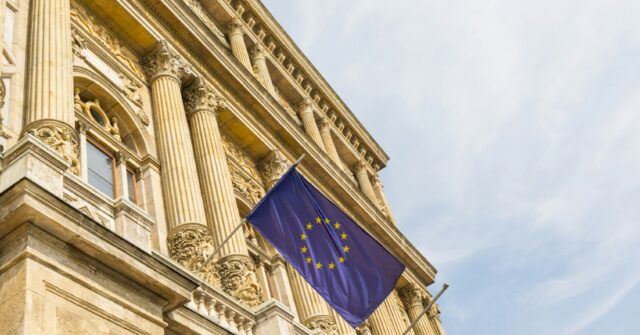FRANKFURT, Germany (AP) – Europe’s economy barely grew in the April-June quarter as frantic earlier efforts to ship goods ahead of new U.S. tariffs went into reverse and output fell for the continent’s biggest economy, Germany.
Gross domestic product grew an anemic 0.1% compared to the previous quarter in the 20 countries that use the euro currency, the EU statistics agency Eurostat reported Wednesday. Growth was 1.4% over the same quarter a year ago.
And prospects are mediocre for the coming months, given the 15% tariff, or import tax, imposed on European goods in the U.S. under the EU-U.S. trade deal announced Sunday. The higher tariff will burden European exports with higher costs to either be passed on to U.S. consumers or swallowed in the form of lower profits.
The economy sagged after stronger than expected 0.6% growth in the first quarter, a figure inflated by companies trying to move product ahead of U.S. President Donald Trump’s additional tariff onslaught that was announced April 2, two days after the first quarter ended.
Output fell 0.1% in Germany and Italy, while growth of 0.3% in France was boosted by a rise in auto and aircraft inventories while domestic demand was otherwise stagnant. That left Spain as the only strong performer among the four largest eurozone economies at 0.7%
“With the 15% U.S. universal tariff likely to subtract around 0.2% from the region´s GDP, growth is likely to remain weak in the rest of this year,” said Franziska Palmas, senior Europe economist at Capital Economics.
Germany’s economy remains roughly the same size as it was before the pandemic six years ago, as its export-dominated business sector struggles with multiple issues including stronger competition from China, a lack of skilled workers, higher energy prices, lagging infrastructure investment, and burdensome regulation and bureaucracy.
Economist Palmas said that Germany “is likely to be hit harder than other major economies by tariffs and continue to struggle this year” before increased government spending from the new government under Chancellor Friedrich Merz, aimed at making up the infrastructure gap, starts to boost the economy in 2026.
Read the full article here


